The Adventure of English (28 page)
Read The Adventure of English Online
Authors: Melvyn Bragg

In
Tristram Shandy
there is a passage which describes how two nuns, believing that the only way to shift an obstinate mule was to say “bugger,” are hampered by the knowledge that to utter such a word was most sinful. They split it up between them. Neither syllable on its own could possibly be sinful, so one shouts “bou, bou, bou” and the other “ger, ger, ger.” In another passage, Sterne goes into great comic detail about the right swear word for the right occasion. “I have the greatest veneration in the world for that gentleman, who . . . sat down and composed . . . fit forms of swearing suitable to all cases, from the lowest to the highest provocations which could possibly happen to him . . . he kept them ever by him on the chimney piece, within his reach, ready for use.”
Johnson had omitted “shit” from his dictionary. By the nineteenth century, in polite print in England, this delicacy of feeling or squeamishness had grown stronger and English was being whipped into line. Chaucer, who had used an immense number and range of swear words, would I think have been puzzled at what had happened to that vigorously rude English element in his repertoire. Morality censored language.
The result was that coarse language withdrew from public view. It went underground or into the work of outraged and outrageous writers, from Rochester to D. H. Lawrence. Swift proposed a way for the country to get rich â set up a Swearers' bank which received the one-shilling fines which could be exacted by Act of Parliament for swearing.
“Blank” became the “expletive deleted,” as in a sentence quoted in 1854: “I wouldn't give a blank for such a blank blank.” Mrs. Beeton could not bring herself to write the word “trousers” and so when she writes about how a valet should dress his master she omits the word, and the item, altogether. The dread word was replaced by the “unmentionables” or “the indescribables,” “the inexplicables” or the “inexpressibles.” “Leg” got away with being “limb.” But Mrs. Beeton's chaps' lower limbs were trouserless.
It was all part of putting English in its place. It was treated by the self-appointed censors as if it were an unruly mob, a subversive faction, a party of revolution. There is something comical in this, but it is also a testament to the power of language. By chopping out words, by executing phrases and assassinating expressions, those who would order society thought they could gain total control. They were a self-appointed word-police. But English was far too dangerous and wild for this new pruned and prudish England. Even Shakespeare was not immune. Indeed, Shakespeare became the prime target of the Bowdlers, named after Thomas Bowdler, whose Family Edition of Shakespeare in 1818 set out to save Shakespeare from himself and make him fit and proper for the nation's Christian families.
Bowdler wrote that the plays were “stained with words and expressions of so indecent a nature that no parent would chuse to submit them in uncorrected form to the eye or ear of a daughter.”
Othello
was a prime target. So in Bowdler, Iago no longer tells Brabantio, “Your daughter and the Moor are making the beast with the two backs,” but rather, “Your daughter and the Moor are now together.” In Shakespeare, Othello worries that Desdemona's “body and beauty” will distract him from his purpose: Bowdler cuts “body.” “Top,” as in “Cassio did top her,” was deleted as was “tup,” as in “an old black Ram is tupping your white Ewe,” as was “naked” â “naked with her friend in bed.” Shakespeare's “bawdy wind that kisses all it meets” becomes “very wind.” “Cuckold” went, as did “strumpet” and “whore.” A generation before Bowdler, an edition brought out by Francis Gentleman had savaged the play, cutting a hundred seventy-four lines from one scene alone â that in which Othello has an epileptic seizure and falls into a trance. Once censorship began, where and why should it end? Those hundred seventy-four lines were considered, by Gentleman, to spoil the “tragic effect.” Dickens' Circumlocution Office in
Little Dorrit
vividly illustrates the trend.
Wherever you land after Swift's failed academy, Johnson's cornerstone
Dictionary
and Sheridan's class-distinguishing elocution, the English are having a high old time tormenting the language into shapes and sounds which reflect strait-laced manners, class prejudice and competing moralities. English was subdued, shorn, trimmed, scrubbed, disciplined and often regarded with distaste. It made no difference in the longer run. It had its own life, and when one door closed, it opened a dozen others. But it was painful for some at the time.
Provincial accents and dialect words became further stigmatised. A gentleman was known as much by his correct pronunciation as by his wealth or breeding. English became a tool for snobs, and a useful ally for hierarchs. These distinctions have entered into the core culture of English and are part of our life today: battles are still fought over the pronunciation of “controversy.” Grammarians still track public utterances and pounce with glee on “mistakes.” Correcting English is one of our great indoor sports. And in one way it is all to the good. It shows how much we care about the language; it shows how highly it is regarded; the unnamed army of guardians out there know, rightly, that what we have is of truly incalculable value and they want to keep it in good shape.
Just as English has a remarkable capacity to unite, so it seems to possess infinite powers of division. Countries, regions, cities, towns, even villages had and to an admirable and bewildering extent often still have a hold on ways of speaking you would have thought that the twentieth-century motorways of conformity had bypassed and starved of life. Added to these, though, after the masters and mistresses of the language had their say, were accents limited solely to certain groups of families, packs within communities, clubs, even cabals. A single house in one influential public school could have its own recognisable, exclusive way of talking. As could a pit village in Durham. We are, each one of us, all talking advertisements for our history. Accent is the snake and the ladder in the upstairs downstairs of social ambition. Accent is the con man's first resource.
Although the variety is neither as influential, as cruel or as crucial as it was, in my experience, say fifty years ago, it remains and often it matters.
In the nineteenth century, it mattered in ways which seem extreme but which we can still recognise. The example of John Keats is one, as Lynda Mugglestone has pointed out. According to proper rules of communication, it was decreed that the “r” should be sounded. Many people didn't, then as now, so “lord” became “laud.” These were often known as “cockney rhymes.” Thomas Hood wrote to Keats urging him to be careful of this common habit, to make certain that his rhymes would “chime to an educated ear . . .” He wrote that “such atrocities as âmorn and dawn' . . . âfought and sort,' are fatal to the success of verse.”
Keats was ridiculed for rhymes like “fauns and thorns,” “thoughts and sorts.” In 1818, John Lockhart in
Blackwood 's Edinburgh Magazine
used the notion of “literate speech” to censure Keats as “an uneducated and flimsy stripling . . . without logic enough to analyse a single idea, or imagination enough to form one original image” and, most damning of all, without “learning enough to distinguish between the written language of Englishmen and the spoken jargon of Cockneys.” Gerard Manley Hopkins was still criticising Keats for the same thing in 1880, again as those “r”s which, when not recognised, made his rhymes “most offensive, not indeed to the ear, but to the mind.”
Finally we have
Pygmalion
just before the outbreak of World War One, in which George Bernard Shaw attempts to demonstrate that the character and social position of an illiterate flower seller from Covent Garden can be transformed utterly into that of a society lady simply by cutting the Cockney out of her and implanting “proper” pronunciation. She can say (in the musical version,
My Fair Lady
) “hurricanes hardly ever happen” correctly and so pass off to the manner born. What is a comedy is very close to reality. Correct and proper speech became the mark: manners maketh men, they said; well, mouthings made them according to the gospel of Shaw's Professor Henry Higgins. The only word which “gave her away” was the swear word, unfortunately dropped: “bloody” as in “not bloody likely.” The word, used on stage, caused a national sensation which totally eclipsed Shaw's messages about class and language.
In 1914, the
Daily Express
talked to a London flower girl after the opening night of the play. She said that no proper Cockney flower girl would ever say “bloody.”
Steam, Streets and Slang
O
f the many revolutions in the eighteenth and nineteenth centuries, the British Industrial Revolution had the greatest influence of all. It changed history utterly. It harnessed and mechanised nature, summoned up an army of inventors whose effect and whose imagination outsoared the makers of the Italian Renaissance, and it has both liberated and disciplined millions of men, women and children everywhere. Cities and industries took over from rural dwellings and the countryside: the majority of the population of the world finally began to leave the land after one hundred to one hundred fifty thousand years of cleaving to it. What would once have been thought of as magic â machines which raced on iron tracks, sound travelling through the air, bulbs which shone brightly all night â and what would have been considered the privilege and preserve of the wealthy â warmth, choice of clothes, travel â became commonplace in fully industrialised countries and available to vast numbers. The Industrial Revolution both exploited and educated the working masses; it changed the possibilities of life. And English met and responded to a challenge which was to make it the global language of economic progress.
In 1756, Professor John Robison went to see James Watt, the inventor of the steam engine, the man whose name marks the language as the unit of power. Robison was anxious to winkle out the latest news from the celebrated engineer and Watt was anxious not to be drawn. In a letter after the meeting, Robison describes the encounter ruefully, but in the course of that letter, the following words are recorded, some new, some revitalised for industry: “condenser” (new), “vacuum,” “cylinder,” “apparatus,” “pump,” “condensation,” “air-pump,” “steam-vessel” (new), “reservoir” (new), “eduction pipe” (new), “suck-pipe” (new), and “siphon.”
Just over half a century later, in 1851, at the Great Exhibition, the English language showed the world what it had made of the machine age. A new vocabulary was on display. The “trade terms” denigrated by Johnson and outside the ken of his contemporaries now powered the language as emphatically, I would say, as Tyndale's Bible. The latter had put the Old Faith into English; the former put English at the service of the new and revolutionary Works. The inventors had a wonderful time; they smuggled in familiar terms, they went back when they could to analogies from one of the most formative springs of language for early modern industry â clock making â they looked into the ancient world, the classical world. What they had discovered was a new continent which needed names, directions, signposts, markers, specific locations everywhere, and the language rose to it. The term “world's fair” entered into the language.
New words had already begun to establish themselves before the cataloguing of 1851. There was “spinning-jenny,” “donkey engine” (leading to donkey jacket, because donkey engines were usually on board ship and very cold to work) and “locomotive” (reaching back to Aristotle). Men who had worked as clockmakers were the first to work on Hargreaves' spinning-jennies and they brought their language with them â “the wheels” they used were referred to as such with “teeth,” “pinions,” “leaves,” “pivots” â all from horology. The agricultural labourers who came to the mills also brought their own terms, usually based on the shape of things â “beetles” for hammering, “rams” for extra heavy hammering. “Pig-iron” came from the shape made by the casting of molten iron into little blocks which reminded the agricultural men of a sow being suckled by piglets. “Horsepower” had to be invented as an aid to those who wanted to buy a steam engine and needed to know how many horses it would replace.
These are some of the words from the catalogue of the Great Exhibition, making their first appearance here. Some are plain English, others are coinages from other languages: “self-acting mills”; “doubling machines” ; “power looms”; “electro-plating”; “centrifugal pump”; “cylindrical steampress”; “hair-trigger”; “high-pressure oscillating steam-engine”; “lithograph”; “lorry”; “anhydrohepseterion” (a machine for stewing potatoes in their own juice).
It is difficult now to realise the excitement and pride in British engineering which the Great Exhibition brought to the country. An extract from the journal of Queen Victoria after her visit gives us a taste of it:
Went to the machinery part, where we remained two hours, and which is excessively interesting and instructive . . . What used to be done by hand and used to take months doing is now accomplished in a few instants by the most beautiful machinery. We saw first the cotton machines from Oldham . . . Mr. Whitworth's planning of iron tools, another for shearing and punching iron of just ½ inch thick, doing it as if it were bread! . . . What was particularly interesting was a printing machine on the vertical principle, by which numbers of sheets are printed, dried and everything done in a second . . . We saw hydraulic machines, pumps, filtering machines of all kinds, machines for purifying sugar â in fact every conceivable invention . . .
Queen Victoria's journal goes on and provides an excellent and enthusiastic review of the exhibition from a surprisingly diligent and, I think, typically amazed visitor.
The scientific and technical vocabularies grew enormously. By the end of the seventeenth century a great number of words had been introduced for basic anatomy and mathematics. From the beginning of the nineteenth century there was a surge in chemistry, physics and biology. “Biology” itself came in in 1819, “petrology” (1811), “morphology” (1828), “taxonomy” (1828), “palaeontology” (1838), “ethnology” (1842), “gynaecology” (1847), “histology” (1847), “carcinology” (1852). In chemistry, “tellurium” (1800), “sodium” (1807), “platinum” (1812), “silicon” (1817), “caffeine” (1830), “chloroform” (1838), “cocaine” (1874). In physics, “sonometer” (1808), “centigrade” (1812), “altimeter” (1847), “voltmeter” (1882), “watt” (1882), “electron” (1891). In biology, “chlorophyll” (1810), “bacterium” (1847), “spermatozoid” (1857), “symbiosis” (1877), “chromosome” (1890), “photosynthesis” (1898). In geology, “jurassic” (1831), “cretaceous” (1832), “bauxite” (1861). In medicine, “gastritis” (1806), “laryngitis” (1822), “kleptomania” (1830), “haemophilia” (1854), “diphtheria” (1857), “claustrophobia” (1879) â a term which might be transferred to the sensation in the mind caused by being so crowded in by lists of words.
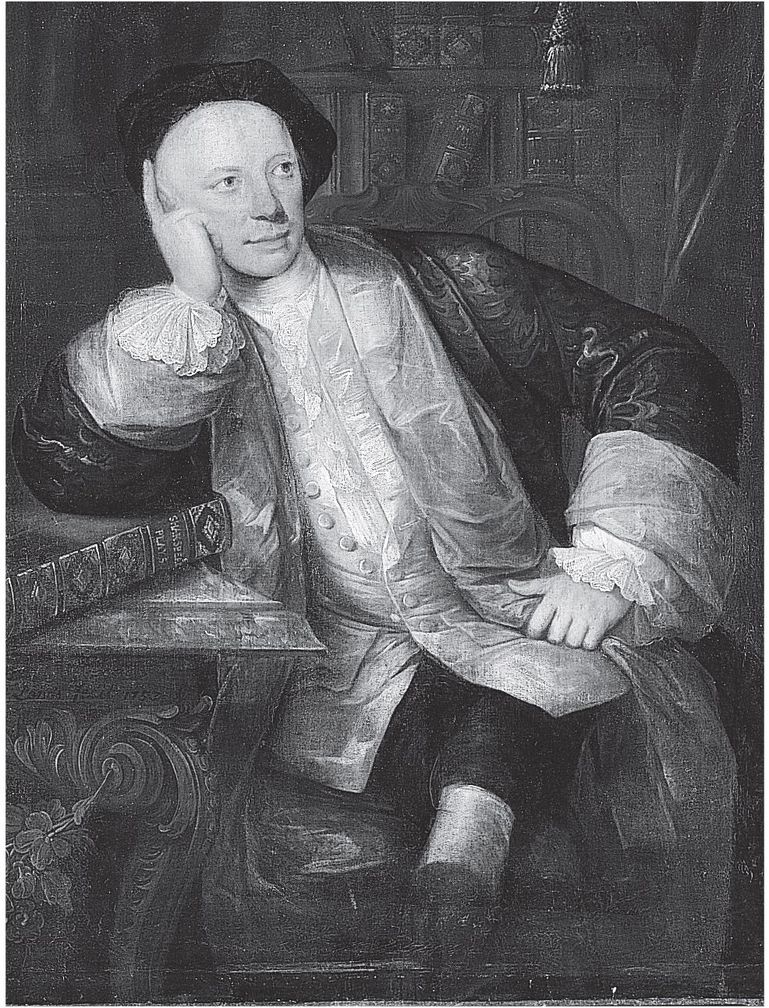
39. Thomas Sheridan, actor, lecturer on elocution, author and father of the playwright Richard Brinsley Sheridan.
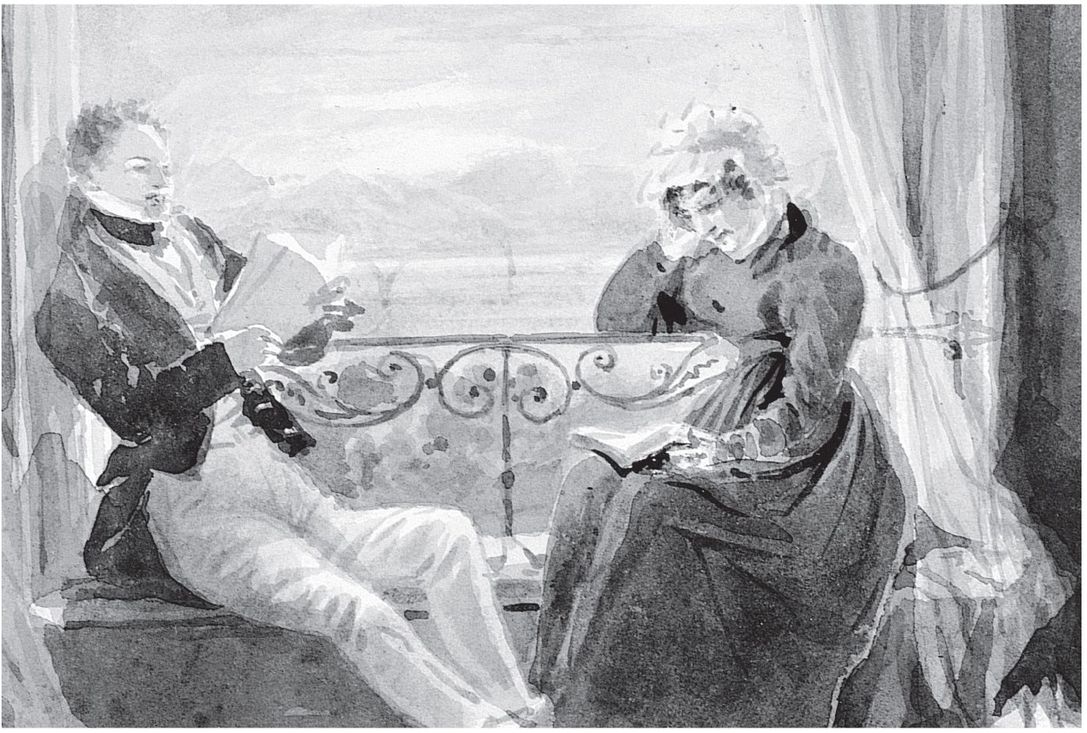
40. A mother and son reading, 1820; in the late eighteenth and early nineteenth centuries the novel became the benchmark for good English.
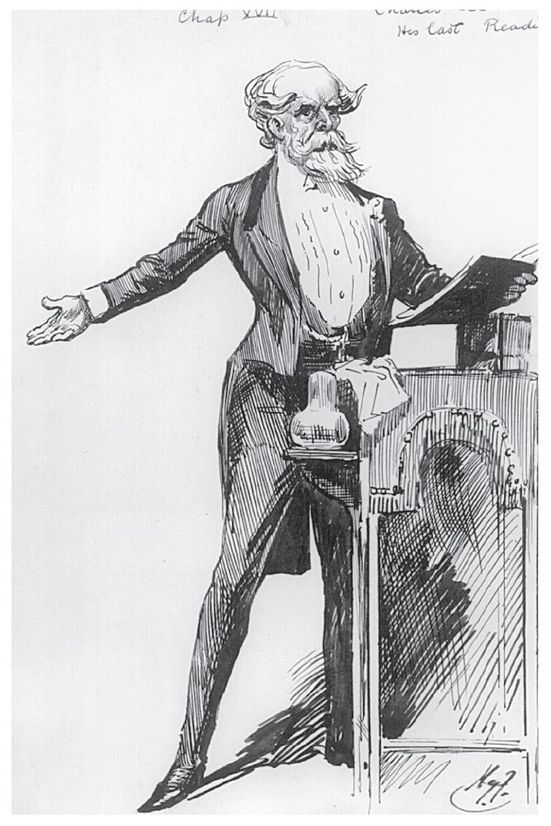
41. Charles Dickens' genius was to use speech as a sign of class â he loved the speed and accuracy with which it placed people.
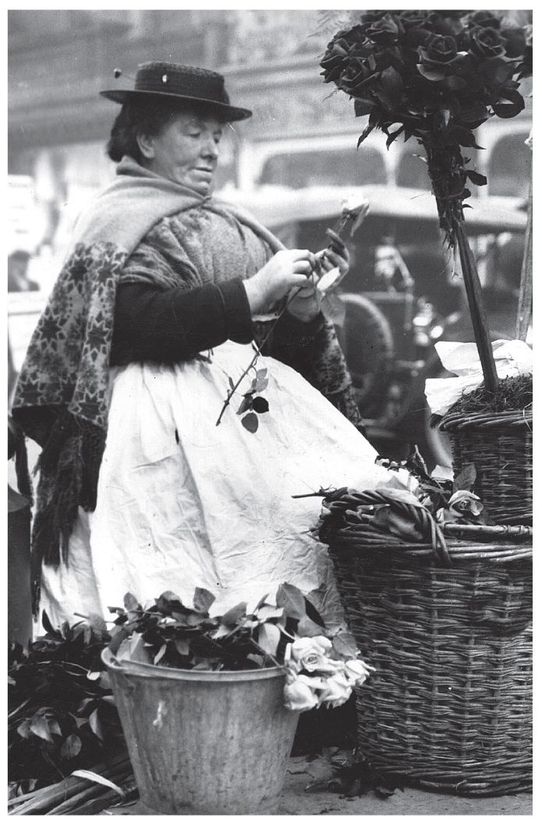
42. A Cockney “flower girl” â the flower sellers' use of language was the inspiration for Eliza Doolittle in George Bernard Shaw's
Pygmalion.
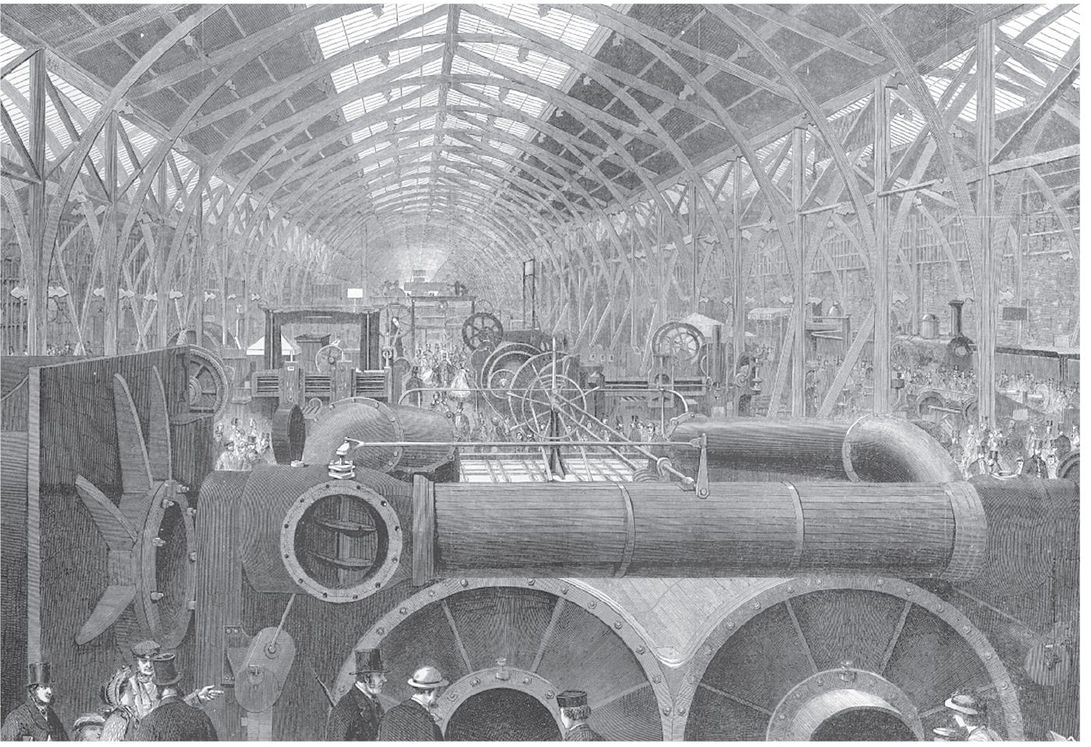
43. By the time of the Great Exhibition of 1851 many new technical and mechanical words had entered the English language.
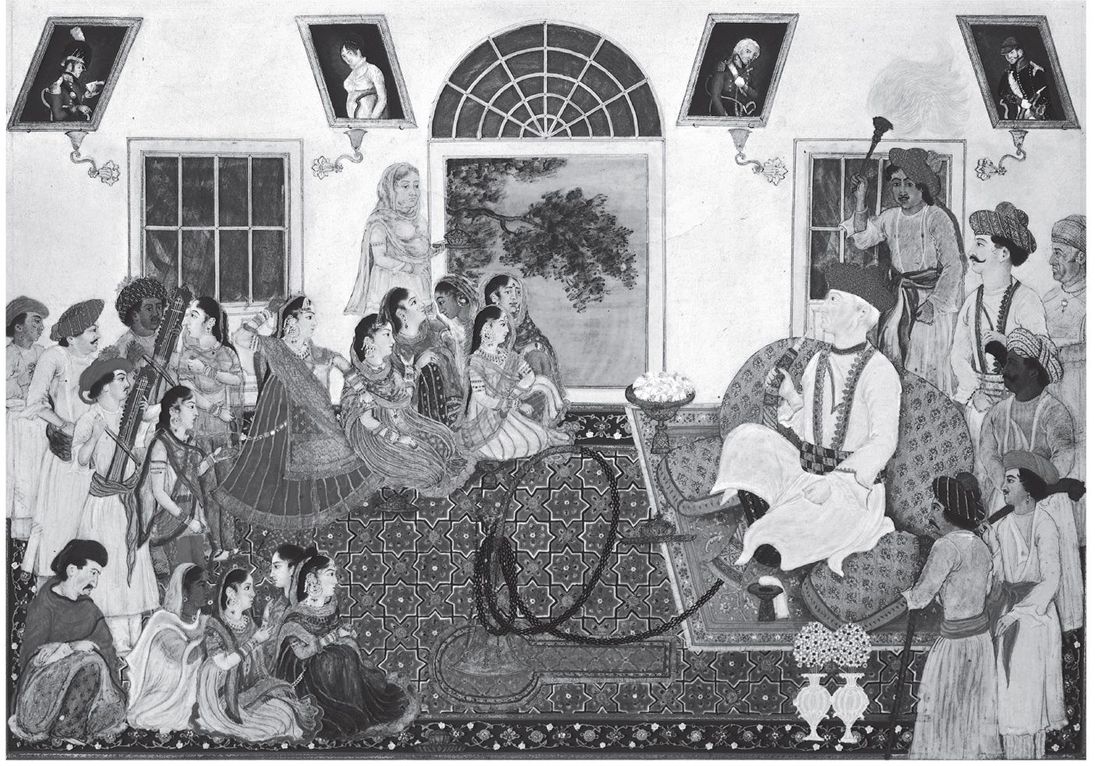
44. Anglo-Indian fusion: in the Delhi of the 1820s, Europeans were encouraged to dress in the same way as the Indians they did business with and to embrace local customs â but note the very English portraits on the wall above.
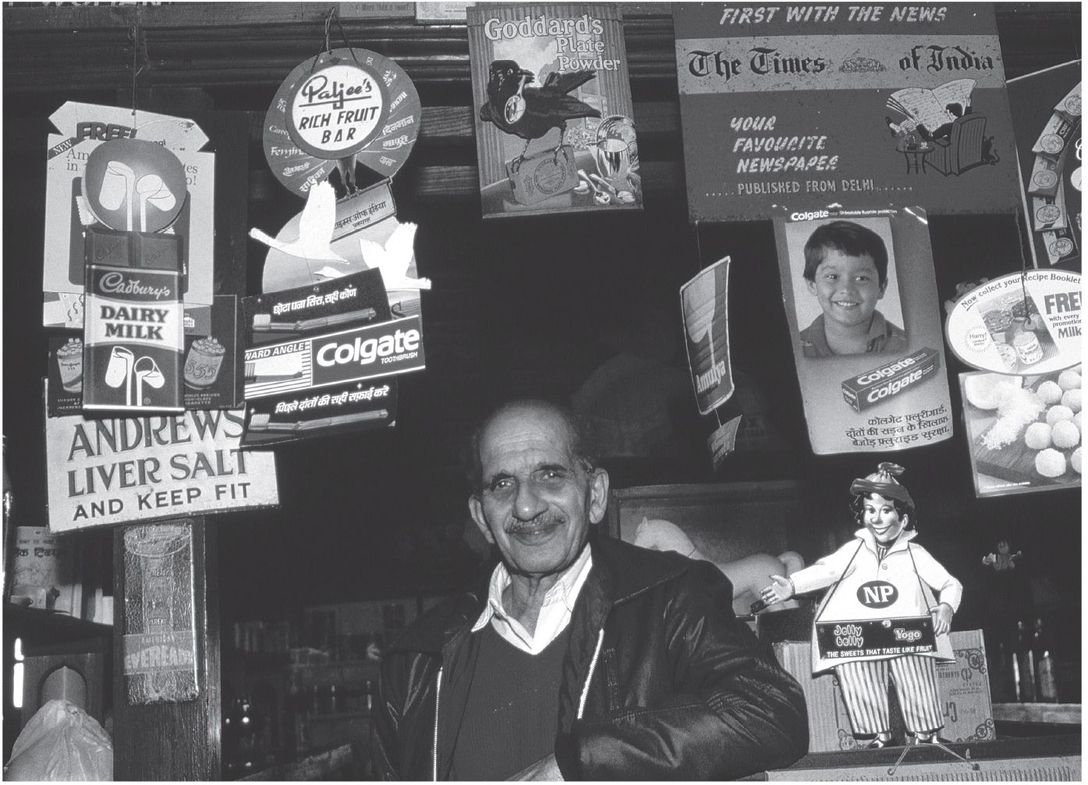
45. The British Raj ended more than fifty years ago, but English remains and thrives.